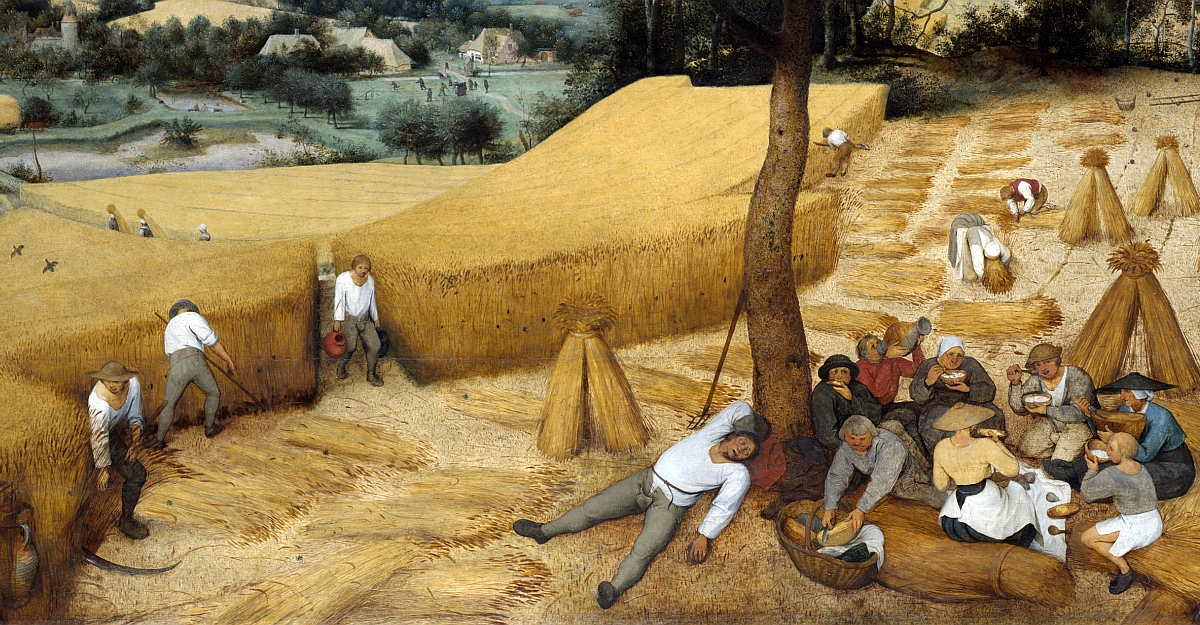It’s almost impossible to recall one’s childhood in favourable terms without coming across as sheepishly wistful. Speaking one’s nostalgia is a conversation ender—like telling someone about your dreams.
In political discourse, nostalgia is often seen as something more insidious and symptomatic of clinging and coveting an ill-defined and pathos-infused past. Political nostalgia, as commonly understood and as championed within the Anglo world, teeters uncomfortably close to fascism in its coveting of a largely-imagined time in the past where everything was in its place, especially those at the margins of white consciousness: women, LGBTQI+ people and racial minorities. As such, it is considered the domain of the far-right. The nostalgic ‘la la land’ of our childhoods becomes politicised into the ‘la la land’ of Trump’s once-great America and Hitler’s once-great Rhineland, home of the golden Aryan race.
Even in its cultural manifestations, nostalgia is often viewed as symptomatic of reactionary tendencies. It did not take much googling effort to find insidious interpretations of cultural nostalgia that link it to far right politics: ‘Stranger Things, La La Land, and Donald Trump: empty nostalgia dominated 2016’, ‘How the Magic of Netflix’s Stranger Things can Help Explain the Rise of Donald Trump’ and ‘Stranger Things 2 Relies on Nostalgic Race Politics’.
The common thread of the discourse around nostalgia—whether personal, cultural or political—is that it does not truly understand that which it longs for and, in turn, generates a fantasy. However, by exploring its historical roots in the era of European land enclosures, we uncover a nostalgia that is more than just wistful sentiment. This was, on the contrary, the expression of an often politically potent longing to restore communal land sovereignty—and traces of this longing still remain in today’s cultural nostalgia.
In 1688, the word nostalgia—a compound of the ancient Greek words nostos (return home) and algia (longing)—was coined by the Swiss physician Johannes Hofer, who used it to diagnose individuals whose yearning for their homeland reached such depths that it caused profound melancholia. This disease arose during the time of European land enclosures, when lords and manors across Europe began to designate communal land—usually a non-hedged field used by villagers to share pasture—as private property. These enclosures displaced peasants from the forests, lakes, wild pastures and meadows from which they derived their livelihood, and caused such widespread land-dispossession that Europe found itself inundated with vagabonds: these were ‘swarming, changing cities, crossing borders, sleeping in the haystacks or crowding at the gates of every town’, as Silvia Federici puts it in Caliban and the Witch. In The Future of Nostalgia, Svetlana Boym points out that among those first diagnosed with nostalgia were ‘various displaced people of the seventeenth century’ including ‘domestic helpers and servants working in France and Germany, and Swiss conscripts fighting abroad.’ Nostalgia began to be known as an ‘immigrant psychosis’.
The origin story of nostalgia as a politically occasioned phenomenon contradicts today’s common understanding of nostalgia in a few noteworthy ways. Firstly, rather than being fantastical or mythological, these original manifestations of nostalgia clearly and specifically knew the object of their longing in all its dimensions: that is, the land they were born and raised in. They could identify the origins of their malaise: displacement through enclosure or, in some cases, conscription. Secondly, and of primary focus here, the specific contents of their longing—that is, what they longed for—was not primarily directed at time but at space, the homeland. Nor was this homeland the sort of vague fairyland abstraction evoked by far-right populists. The nostalgics knew the land of their longing and they knew it well: they had an aptitude for, in Boym’s words, ‘remembering sensations, tastes, sounds, smells, the minutiae and trivia’ of the land they were raised in.’
If you were to ask a late-seventeenth century displaced peasant, now scraping a living in the streets of London, what they were so nostalgic for, they could tell you precisely: the food, water, land, pasture and life provided for by the common land where they used to lived and which they knew so intimately. This nostalgia wasn’t passive or wistful, either: on the contrary, it proved to be the embryo of political action. Numerous anti-enclosure uprisings aimed at reclaiming privatised land such as the Diggers’ movement (1650) and the Kett’s Rebellion (1549) can be seen as expressions of peasants longing to return to their communal land.
I contend that nostalgia as we know it today still retains an impulse towards restoring communal land ownership. Cultural nostalgia for the 1960s and 1970s longs for a time and place that was, among other things, immediately prior to the new wave of enclosure precipitated by Margaret Thatcher and Ronald Raegan’s neoliberal reforms. As Brett Christophers shows in The New Enclosure, Thatcher’s policies caused the transferral of ‘approximately two million hectares of land—or 10% of Britain—from public into private, corporate hands.’
Rather than seeing our cultural attachment to 1960s popular culture symbols such as the Route 66 road sign solely as a symptom of our consumer appetites or of boomers having a stranglehold over cultural production, we might see it as a longing for the uninhibited access to the land that they evoke. The road connected the pastures that US migrant workers such as folk singer, Woody Guthrie declared ‘must always be free’, while the recent movie Nomadland (2017) explores how this free-access to public space across American highways has been lost. The ‘van life’ movement might also be construed as an manifestation of cultural nostalgia for the open-roads of the 1960s, its Instagram revival consisting of the same archetypes and evoking the idea of the whole country as home—not just the picket fences that enclose houses.
By historicising cultural nostalgia, we may reveal the fundamental object of its longing—the retainment of communal land sovereignty—and prevent it from serving as a blank canvas for far-right populists to swoop in and impose fantastical interpretations that prey on racial and gender-based resentments.
In solidaric dialogue with all victims of global colonial capitalism, then, let us reclaim nostalgia in service of its original cause: the ongoing struggle against private enclosure of the natural resources of which are our collective birthright. Our collective fate might depend on it.
Image: Pietr Bruegel the Elder, The Harvesters (1565), detail






